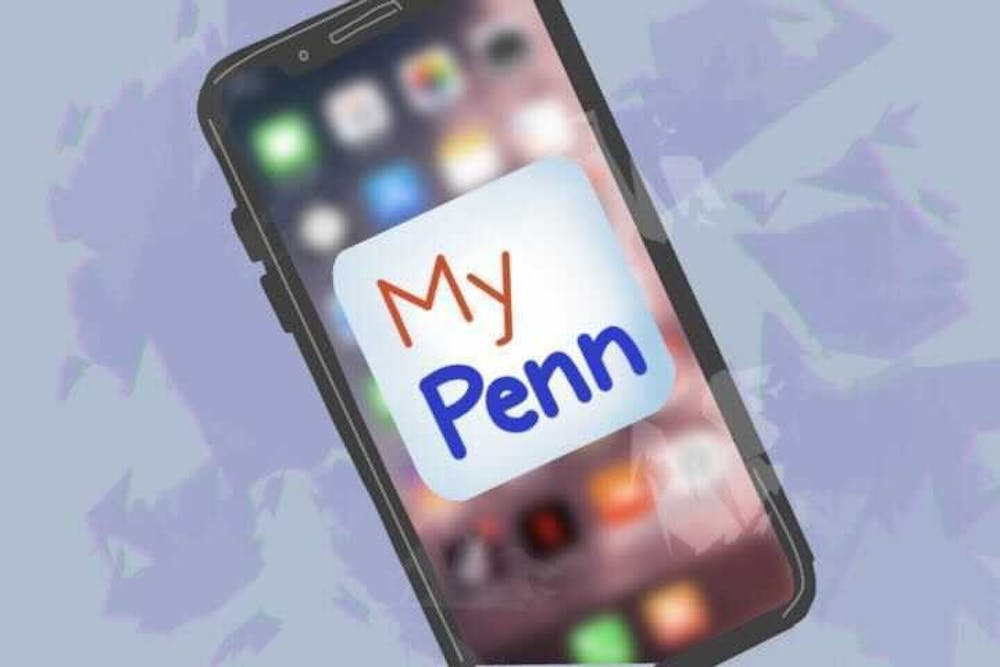Penn replaced QuakerNet with MyPenn as its alumni database system, garnering largely positive reactions from student and alumni users who appreciate its revamped features.
The switch to MyPenn, which occurred on Oct. 21, came as a surprise to some alumni who expressed mixed feelings about the new system and its features. Associate Vice President for Alumni Relations Fredrick Hoopes Wampler said that Penn partnered with Salesforce to create the system largely due to the outdated technology used in QuakerNet.
"With the new brand MyPenn, we'd love for awareness to be as high as possible for people to know that it's a resource, that it’s a community, that it’s available for their use to make connections and to feel part of the larger alumni community,” Wampler said. “[MyPenn] definitely looks more like other interfaces you see around the Internet now."
He added that data infrastructure and directory search functions have improved with the new system.
Unlike QuakerNet, MyPenn features discussion boards that allow students and alumni to communicate with each other online, and also join groups with those who have common academic interests or backgrounds.
Many students confirmed that MyPenn initially did not include alumni contact information that was previously listed on QuakerNet. Second-year Wharton MBA student Matt Weiss contacted Penn Alumni Relations after being initially disappointed by the switch to MyPenn, emphasizing that students need access to alumni information for networking and recruiting purposes.
Penn Alumni Relations has since corrected the technical error so that email addresses from QuakerNet are now visible in MyPenn. According to Wampler, an email address might not appear on a student or alumnus’ MyPenn profile if the user has chosen to hide it or if there is no active email address in the system.
“I was a little bit frantic in the beginning but the fact that [Alumni Relations] responded to me and made this necessary change is a really exciting, great thing," Weiss said. "It shows that the University does listen to its alumni and students.”
RELATED:
Meet the Penn graduates tapped to serve in the Biden-Harris administration
Alumni urge Penn to revoke Trump’s degree after Capitol riot, with some withholding donations
MyPenn additionally offers students to participate in a mentorship program, Ben Connect, that matches students with alumni. Through the program, students can flag three alumni they may be interested in connecting with and can become paired with them to foster a mentor-mentee relationship.
2016 College graduate Kelly Bridges has served as a mentor through Ben Connect since the summer.
"I think it is a great way to give back to current Penn students," Bridges said. She said that she has also engaged with MyPenn's discussion board and had undergraduate students reach out to her using the system's new inbox function.
Bridges, a member of the Penn Alumni Water Club, added that she appreciates how MyPenn allows students to virtually navigate and contact various alumni groups.
Wampler said that Alumni Relations kept Quakernet's PennPoints service, a feature that lets alumni self-report their engagement with the University and receive credits for it, in the switch to MyPenn. Alumni can choose between three possible engagement categories — "give" which represents donating to the University, "go" which represents attending a Penn affiliated event or program, and "lead" which represents volunteering for the University.
Though she finds MyPenn's new functions to be more useful than those present on QuakerNet, Bridges found the transition between both systems to be confusing.
"From the alumni perspective it can be a bit disorienting. It is not always clear which resources should be used to engage with students and what the platforms' functions are," Bridges said.
2016 College graduate Madeleine Wattenbarger said that while she has not used MyPenn, she used QuakerNet during her undergraduate years to connect with alumni who worked in fields related to human rights journalism.
Although she found the alumni directory to be helpful, Wattenbarger believes that QuakerNet's platform was not very intuitive or easy to use, adding that it did not facilitate organic forms of communication between students and alumni.
"I think it would be great if Penn students were encouraged to reach out to alumni with the goal of receiving advice and developing a more personal relationship with them," Wattenbarger said.
Wattenbarger explained that she often felt too intimidated to reach out to alumni using QuakerNet, because the platform's main purpose was to facilitate networking and hopes that MyPenn improves by fostering more organic and personal relationships. She added that she believes the benefits of alumni networking are exclusive to people who attend prominent universities such as Penn.
"This sort of alumni networking keeps industries and circles of power really insular and it encourages people to focus on hiring those who went to their University. It is a way of perpetuating elitism in a lot of industries," Wattenbarger said.
Like Wattenbarger, 2013 Engineering graduate Willis Zhang hopes the new system will foster close connections between Penn students and alumni – especially now that users can indicate that they are available for mentorship on the platform.
“Honestly, I was pretty happy that my PennKey from my college days still worked, so that was nice. I didn’t need to create a new user [login],” Zhang said. “[MyPenn] is like LinkedIn for Penn people.”









